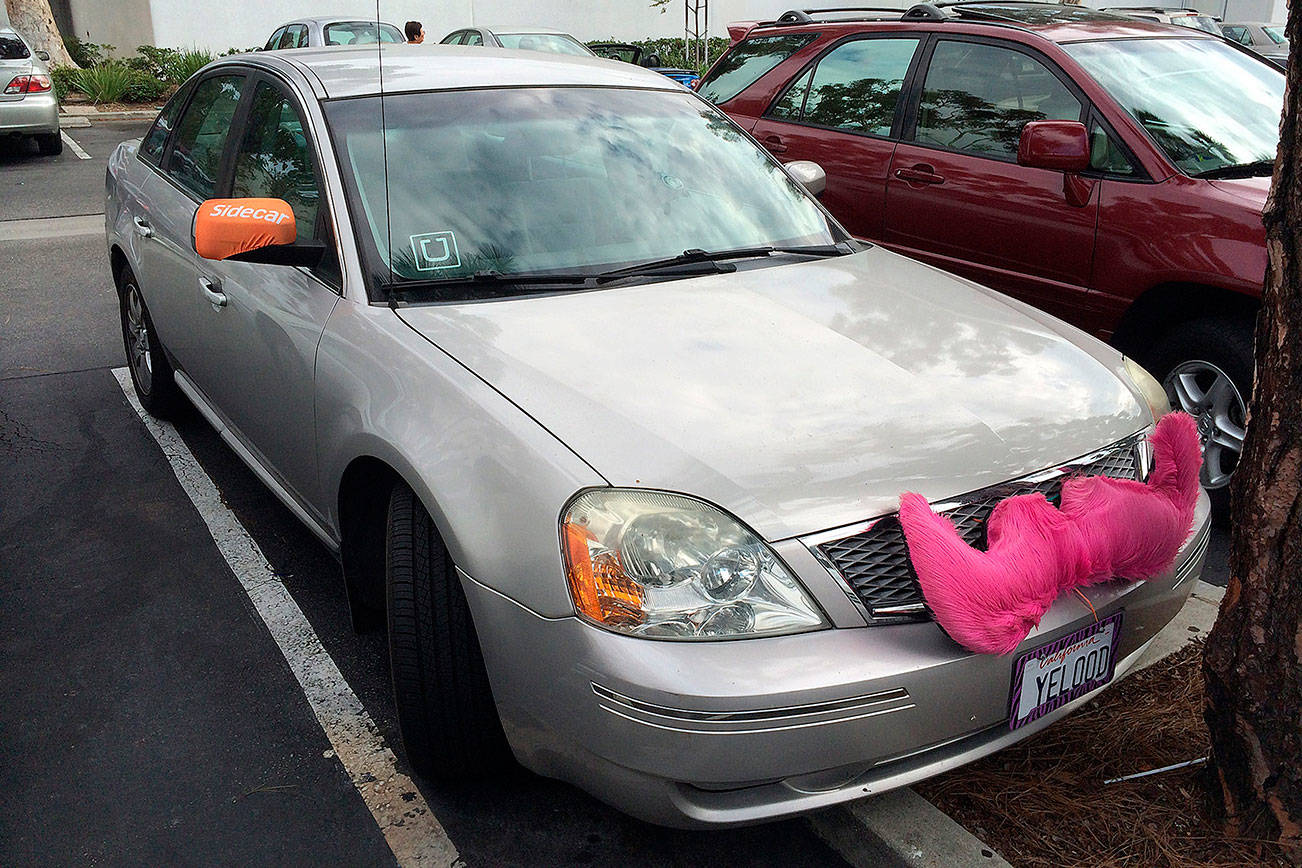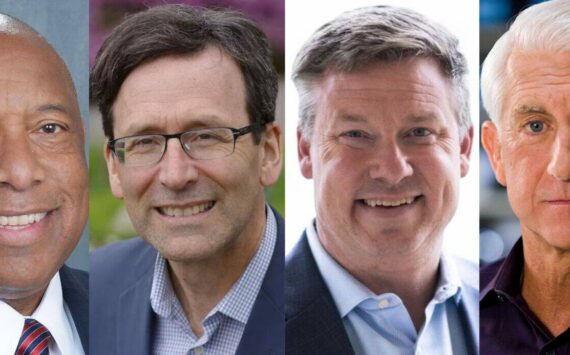Scott Lee Wilson has driven ride-share and made deliveries throughout the Puget Sound area for four years. Operating independently from heavy hitters like Uber and Lyft, he’s built his own successful business, Team Me Up Scotty Transportation. So he’s not too keen on the City regulating all ride-sharing. During public comments at the April 9 Seattle City Council meeting Wilson said that he opposes the city’s consideration of creating regulations on the for-hire transportation industry, because “the city does not belong in the business.”
“There’s no reason in the world why my city government should be interfering in the free market system that lets our public determine through supply and demand what the minimum or maximum rates should be,” Wilson told the Seattle City Council.
But on Monday the Seattle City Council laid the groundwork to do just that. Councilmembers unanimously passed a non-binding resolution to create a voluntary work plan between for-hire transportation companies and the City to gather data on taxicab companies and ride-share services such as Lyft and Uber.
The resolution passed on Monday requests that the transportation companies submit the total number of hours and completed trips that each driver with a company worked (or the amount of hours on the companies’ platform for ride-shares), the distance traveled to pick up the passenger and with the passenger in the car, the fares charged, and the amount that each driver was remunerated last year. The data needs to be delivered to the Director of Finance and Administrative Services by May 31. If the data is not received by that date, the Council will consider legislation that requires the data from market participants, including drivers.
The Council would then use the data to suggest policy reform, such as increasing the base fare of all Uber and Lyft rides from $1.35 to $2.40. The resolution stated that the data will help the City Council have a better understanding of the for-hire vehicle industry when implementing future policies.
City Council President Bruce Harrell said that the Council wants to gather data to create regulations that would increase the hourly wage of Lyft and Uber drivers—who have testified about low wages—and to create a more competitive market for taxi drivers who have been pushed out of work by ride-share companies.
“Yes, we are trying to ensure a level playing field, equal market access for all industry participants,” Harrell told the public during the City Council meeting. “There are people who have worked for decades in this industry keeping our mobile transportation alive, and I don’t think it’s consistent with our policies to not consider the legacy participants in addressing issues of fairness in moving forward.”
The public comments was a mixed bag of drivers and riders who opposed regulations, and others who believed they were needed to raise their wages.
Takele Gobena, a Union Representative for Teamsters Local 117—a union that is seeking to organize ride-share drivers— voiced his support for the resolution and expressed hope that the city would provide greater support for the drivers. He referenced an NPR study that showed one in five American workers are independent contractors, a rate that is projected to increase in upcoming years, and that most of those workers don’t receive any health care benefits or guaranteed sick time. “The economy is changing, but workers independently contracted … [with] Uber and Lyft and gig economy are being exploited, underpaid, and here most of them are immigrants, refugees, and people of color.”
One taxi driver told the City Council that Uber’s lower fare rates are taking away his business, and he urged the City Council to regulate the price of the app-based rides in an effort to level the playing field. Taxis charge $2.70 per mile, according to the City’s Finance and Administrative Services Department.
Some passengers and other drivers like Wilson came out in droves to speak against the resolution, citing that the resolution lacked clarity.
“You also need to take this with baby steps. Get the data that you’re looking for, make small changes, wait a few months, look at more data, make more small changes,” one commenter said. “Because if you hit this with a hammer, the unintended results could be disastrous–not just for the city of Seattle, but if you put enough drivers out of work here, they’re going to flood the Tacoma market, the Olympia market, and the Bellingham market, and ruin ride-share from the border all the way to the south end of Olympia. So please, baby steps.”
A rider in a blue T-shirt that read “#SaveOurRides” said that she depended on Uber to drive her to the grocery store and the hospital while she was ill. She voiced concern that she would no longer be able to use the service if rates rose.
Uber General Manager for the Pacific Northwest Alejandro Chouza told the council that it was supportive of sharing data to develop policies, but he also urged the Council not to raise ride-share rates. “Significantly increasing rates would eliminate affordable transportation to hundreds of thousands of Seattleites who require it,” Chouza said. “Our research and experience shows that ride-share drivers would not benefit from this change, but it would—as others have noted—benefit taxi.”
A 2017 study by an NYU professor and Uber staff stated that raised fares don’t increase drivers’ hourly pay, because there’s less demand for their services. “There are no other major U.S. cities that currently have fare floors like Seattle is considering,” Uber spokesman Nathan Hambley told Seattle Weekly.
Along with increasing the base fare for ride-shares, the resolution delineates that the data could be used to establish a bill of rights for drivers and passengers, and to create flexibility in insurance standards to lower costs for drivers.
The resolution comes at a time when Uber has been considering its own insurance options for drivers.
Starting April 12, Uber drivers in Washington now have the option to obtain Driver Injury Protection through the insurance agency Aon. It provides affordable coverage for medical expenses, survivors benefit, and disability payments due to an accident. Washington Uber drivers can access coverage details through their driver app.
“We believe drivers should have access to a low-cost option to protect themselves and their families against rare and unforeseen accidents that prevent them from working,” Chouza wrote in a statement. “We are excited to see this insurance product provide Washington state drivers with access to peace of mind for a few cents per mile, directly through the Uber app.”
Enrolled drivers will be offered protection on injuries sustained while on the app, en route or to pick up or drop off passengers. But unlike most employee-offered insurance, premiums will not come out of the paycheck, but will be calculated by a per-mile cost of $0.0375 that is only charged while on a trip.
Uber considers the option its latest example of providing benefits to independent workers, although the City Council is adamant that city-wide regulations are needed to provide better support to drivers.
mhellmann@seattleweekly.com








